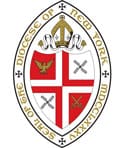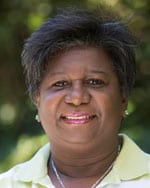Gifts, Bequests, Funds and Miscellaneous
This section includes information on a range of more or less commonly encountered issues related to the handling of money or movable property. Click on the links below or the menu bar for more on each.
Space Use Income
With very few exceptions, the summary of operating income and operating expenses that you enter on the Parochial Report should match the numbers on the operating revenue and expense statements presented monthly to the Vestry and yearly to the Annual Meeting.
One notable exception is how you report income you receive from outside organizations that use your space (included with “Other Operating Income” on line 5 of the Parochial Report).
During the year you should be reporting to the Vestry the full amounts you receive from such sources. However, before you add those space use contributions into line 5, you may subtract the cost of providing the space from the gross amounts you received if you use the following method authorized by the Diocese.
You can access a Microsoft Excel spreadsheet set up with formulas that will help you with this calculation. In order to open the spreadsheet you must have Microsoft Excel on your computer. Click here to access the spreadsheet[wpfilebase tag=fileurl id=293 linktext=’Space Use Worksheet’ /].
-
- Measure every space in your physical plant that is used either by the congregation or by an outside user.
- Enter the name of the space and the measurements into the Space Use Worksheet.
- Enter into the Space Use Worksheet the number of hours per week and and the number of weeks per year each space has been used by the congregation and by outside groups. If the same space is used by the congregation and by outside groups, make two lines for that space. See the samples given on the Space Use Worksheet.
- The Space Use Worksheet will calculate the total number of square foot hours.
- Copy the formula in Column F to any row that has to do with square foot hours used by outside groups.
- Enter the total costs related to maintaining the entire plan under General Maintenance exp. (Column I) Include insurance, heat, light, water, maintenance supplies and contracts, minor repairs, etc. Include the sexton’s compensation if he or she cleans up after the outside users. (Do not include expenses that relate only to the congregation’s use of the space.)
- The formulas will calculate the allocated costs you can deduct from space use income.
- Enter in Column I under Direct Maintenance exp. any costs that relate only to providing the space to outside groups. (Perhaps you pay somebody to set up and clean up each time your hall is used for an event.)
- The total that the spreadsheet will calculate in Column F, Row 50 is the amount you can subtract from your total space use income. However, if the total cost of providing space to outside groups is greater than the total contributions you received, enter zero.
- Be sure to reduce the total operating expenses you report on line 14 by the amount you subtracted from line 5.
Bequests
The Internal Revenue Code requires organizations to acknowledge to the donor in writing each contribution of $250 or more. See a booklet published by the National Church, “Guidelines for a Congregation regarding Bequests, Special Gifts, and Endowments” (www.episcopalchurch.org).
When a donor contributes property other than cash to the parish, it is responsibility of the donor to establish the value of the gift for tax purposes, perhaps through an independent appraisal. The parish should not determine the value of any gift for the donor’s tax purposes.
When an organization sells tickets to a benefit, priced in excess of $75 each, the Internal Revenue Code requires the organization to specify how much of the ticket price represents a charitable contribution, so that the purchasers of the tickets have this information when they file their tax returns.
A gift is not deductible for tax purposes when the donor uses the parish as a conduit to direct funds to specific ultimate individual recipients.
Gifts of Stock
Mutual Funds and Other Non-Stock SecuritiesDifferent requirements apply for the transfer of mutual funds and other non-stock securities. For essential information, please contact
|
||||||
Your congregation’s contributors may wish to make gifts of securities to your congregation. Gifts of securities can be made for capital campaign contributions, special gifts, or normal annual giving.
There are excellent reasons to encourage gifts of appreciated stock. If donors sell stock and give you the proceeds, they can deduct the amount of the gift from their taxes, but they will have to pay capital gains tax on the gain realized when the security was sold. However, if donors give you the security directly and you hold it or sell it, the donors can deduct the value of the stock on the date it is given without paying capital gains tax on the appreciation.
If your congregation has funds invested, most likely you can receive a gift of stock directly into your account. Your Investment Committee should have a policy on whether to sell or keep gifts of stock. The policy of the Diocesan Trustees is to sell such gifts immediately and invest the proceeds or use the gift for the purpose stipulated.
Accepting Gifts Through the Diocesan Account
If your congregation does not have an account that can receive a gift of securities, you can still accept such gifts. You can use the diocesan account to receive the security. The diocese will instruct Fiduciary Trust International to receive the gift and sell it. Once the gift is sold and settled, the proceeds will be sent via a check directly from Fiduciary Trust International to the beneficiary. Here’s what you need to do.
- Notify
Ms. Karin Almquist
Controller
Tel: 212-316-7534
Parish Audits
that you are arranging a gift. Please be prepared to provide all the gift details: Delivering Broker; Number of Shares; Ticker Symbol; Donor Name and Beneficiary.Ms. Michele Kearney
Executive Director, DIT
Tel: 212-932-7312; Fax: 212-316-7405
- The finance office will instruct Fiduciary Trust International to receive the gift, sell it immediately and send a check for the proceeds directly to the beneficiary.
- Common Stock Gifts Only: Give your donor the following information in order to deliver DTC eligible common stock gifts to our broker Fiduciary Trust International who clears via DTC through JP Morgan Chase as follows:
JP Morgan Chase Bank
JP Morgan A/C #P56059
For Fiduciary Trust Int’l Clients
DTC Participant #902
For A/C#440560118
Bd of Managers #2
Mutual Funds and Other Non-Stock SecuritiesDifferent requirements apply for the transfer of mutual funds and other non-stock securities. For essential information, please contact
|
||||||
Parish Discretionary Fund
The Discretionary Fund should not be a separate bank account. The balance should be tracked in the general account.
If there is a separate account, the Parish Discretionary Fund should be an account of the parish. Although the priest may write the checks and maintain the confidential records of the fund, the fund itself belongs to the parish. The bank account should be in the name of the parish, with the parish’s tax ID number on the account.
Gifts to the discretionary fund should be made to the parish, rather than to the priest as an individual. A gift to the parish is deductible to the donor, whereas a gift to the priest is not. Monies expended from the fund should be for charitable and pious purposes.
Hence, gifts to the poor, gifts to any recognized charitable organization, and gifts to the church itself, are within the general intent of discretionary funds. Discretionary funds are not intended for the business purposes of the priest. (A separate line item in the operating budget of the parish should be established for the business or professional expenses related to the priest’s ministry.)
Because discretionary funds are the property of the parish, they should remain at the parish when the priest is called elsewhere. The fund should be audited annually as part of the parish audit. Given the confidential nature of the transactions, arrangements should be made for an objective person to review the discretionary fund on a confidential basis.
Restricted Funds
Truly “restricted” funds are contributions restricted BY THE DONOR in writing to a particular purpose. Accepting a donor-restricted gift means that the Vestry agrees to abide by the restriction, and you should have copies on file of all documents restricting donations. Those documents should be reviewed from time to time to be sure that you are abiding by the donor’s restrictions.
The only way the vestry can redirect funds that have been restricted by the donor is to ask the donor or donors for permission in writing to change the purpose of the gift or, if the donor has died, to petition the New York State Attorney General to change or eliminate those restrictions.
Funds not restricted by the donor in writing are therefore unrestricted. However, if you solicit funds telling donors that you will use their contributions for a particular purpose, then those funds should also be considered donor-restricted, because the donors gave the money based on the Vestry’s representation that the funds would be used for a stated purpose. To do otherwise is an act of bad faith which can destroy relationships with congregants and other donors. If funds are solicited for a carillon which ends up costing less than the amount originally planned, you might write to the donors to that campaign and ask their permission to use excess funds for another stated purpose, like the organ or building fund.
The Vestry is free to “designate” unrestricted money for any corporate purpose. This money is and remains legally unrestricted . If the Vestry designates funds for one purpose at one meeting, they can redirect those funds at another meeting, and so can another Vestry group elected in the future.
Special Offerings
Parishes frequently participate in special offerings such as Episcopal Relief and Development and the United Thank Offering. When parishioners make donations for these purposes through the parish, the Parish Treasurer accounts for them under the heading of “Special Offerings” receipts and reports them on the National Parochial Report.
For the Episcopal Relief and Development, make the parish check in the total amount payable to “Episcopal Relief and Development,” and send it directly to Episcopal Relief and Development, Episcopal Church Center, 815 Second Avenue, New York, NY 10017.
For other special offerings, the parish check is to be made payable to “The Episcopal Diocese of New York.” Mark plainly on the check or on a transmittal sheet the name of the offering to which it is to be applied. Send it to the Diocesan Controller, who collects these offerings from the parishes, consolidates them, and forwards them for the special purposes that have been specified.
Safekeeping of Valuables
Silver should be kept locked in a safe when it is not in use, and photographs of it should be retained off premises for insurance purposes.
Valuable papers and records should be kept in fireproof cabinets, or in a secure location away from church premises.
Copies of these photographs and valuable papers and records should be sent to
Mr. Wayne KemptonArchivist & Historiographer Tel: 212-316-7419; Fax: 212-316-7405 |
Cemeteries and Columbaria
Cemeteries and columbaria, including those connected with churches, are highly regulated by New York State under the Not-for-profit Corporation Law. For instance, there are specific regulations applicable to perpetual care funds. If your congregation operates a cemetery (churchyard), a columbarium, or a memorial garden, it is highly recommended that you have the rules and procedures of your facility reviewed by an attorney experienced in this field.
A committee of clergy and laypeople in the Episcopal Diocese of New York created the following files regarding operation of columbaria. They are based in some cases on procedures and regulations already used in the diocese. The guidelines should not be used without the ADVICE AND CONSENT OF YOUR LEGAL COUNSEL.
Rules and Regulations
-
- Management of the columbarium shall be by the Rector, Wardens and Vestry of the congregation (hereinafter, “the Vestry”) or a committee created by this body (hereinafter, “the Committee”).
- Any current or former financial contributor to this congregation may purchase one or more niches for the internment of the human remains.
- The size of every urn shall not exceed ____ x _____ inches.
- The contents of niches are limited to the following: an urn containing human remains and any accompanying memorabilia that may fit in the niche.
- The marker for each niche, including all lettering, legends, and markings thereon, shall conform in all respects to standards approved by the Vestry, or the Committee. The marker must be ordered through the church.
- Payment for use of the niche shall be in the manner approved by the Vestry or the Committee at the time the Agreement is signed and as provided therein. Niches shall only be assigned after the Vestry has received payment in full.
- The purchaser shall pay for the actual costs of the marker (including lettering, legends and markings) and shall be made for opening and closing any niche. The person authorizing the action shall make payment of all charges promptly upon the rendering of the statement or statements.
- When clergy services are desired at the Columbarium, it is expected that, unless unavailable, a minister of this church will officiate. If the deceased, or the family of the deceased, desires to have another clergyperson participate in the service, then, upon approval of such participation, the invitation to the other minister may be extended.
- Flowers, plants or other decorations are to be placed in the columbarium only in accordance with written guidelines established by the Vestry (or Altar Guild).
- The Vestry may amend or change or modify these Rules and Regulations at any time.
- The columbarium is considered part of the Church structure and all persons in the area of the columbarium are expected to conduct themselves accordingly.
Note: One church has dedicated 10% of the niches for indigent people, and requires that the remains of a pet may only be placed in a niche once the owner’s ashes are placed in it.
Columbaria and Memorial Garden Pricing
It is impossible to make specific cost guidelines for any group of congregations who are planning a columbarium because circumstances will differ so widely from one situation to another. The purpose of these data is to give congregations some general guidance concerning areas about which they may want to think as they make their plans to provide in or near the church a place for the burial of the dead.
The term parish will be used in its broadest sense, meaning to include parishes, missions, or other congregations who are part of the Episcopal Diocese of New York.
A parish begins by deciding the purpose of having a columbarium. This will dictate to some degree the fees paid by those using it. If, for example, the parish wishes to use a columbarium to build a substantial endowment for the work of the entire parish, that decision may suggest a rather high fee. On the other hand, if the parish wishes to provide low cost burial spaces for its own members, and perhaps those outside the parish, such a goal may suggest a modest fee.
Fees are often based on the customary practices and costs of burial in the area served by the parish, and the expectations of the congregation and the wider community the church wishes to serve. The church should probably not make any decision about fees based solely upon what the market will bear, but the parish should think carefully about whether it wishes to fix its fees at the top, middle or bottom of the customary range for its community.
It will almost certainly be helpful for a parish contemplating a columbarium to examine the fees charged by other congregations in its community.
The cost of columbaria is not exorbitant, however the parish may wish to ensure that within a certain period of time the up-front investment is recouped. If this is the case, then the parish will want to be very careful in assessing and computing the investment made by the congregation. The total costs may well include alterations to the building to receive the installation of the columbarium, perhaps including structural reinforcements, electrical modifications for adequate lighting, handicapped access if that is an issue, alterations to existing stained glass windows, provision of objects of art determined to be suitable or required, and engineering or architectural services which may be required or determined to be desirable.
In the case of outdoor installations, the parish will need to consider the costs of preparing the land and landscaping, addressing issues of drainage, stability and soil quality, removal or replacement of trees and shrubs, general landscaping, paving, provision of seating areas and possible objects of art. Parishes located within areas where historical preservation regulations restrict what churches may do with their property should include any costs of dealing with preservation agencies, hiring consultants to assist with administrative applications and submission of proposals, drawings, and incorporation of changes required by these agencies before permission can be granted. Before fee schedules are developed, prepare a comprehensive and extensive evaluation of just how much the actual costs of building a columbarium or memorial garden.
The parish should obtain legal advice before it prepares any contracts used for the sale of niches in the columbarium. Contract law in this state is a complex, specialized form of legal practice and attention to its details at this early stage in planning can reduce or eliminate later litigation with its attendant costs. The cost of such legal advice should also be considered a part of the cost of the columbarium.
The basic fee is for a niche. The parish should decide, in consultation with the designer of the system chosen, how many remains could be received by a given niche and should determine the appropriate fee structure. For example, a parish might wish to sell a niche for one person at a certain rate and then charge a somewhat reduced fee for subsequent additions to the niche. Or it might decide the fee should be the same for all remains, which seems to be the most common method.
Another basic cost is the container for the ashes. Different systems will dictate different approaches to this service. In some cases, the parish might provide a standard container for ashes, with other containers of greater value provided at higher costs. There are occasions when persons may wish to add objects other than containers of ashes to the niches. The parish will need to develop a policy about such additional items, the cost, and liability for lost or damaged goods.
The parish should determine the cost of opening and closing each niche. These processes may include labor and special tools or hardware the parish needs. The parish will also need to ensure that its staff is trained to provide these services with skill, sensitivity, and efficiency, preserving the integrity of the columbarium and ensuring that openings and closings are done with dispatch.
Another cost is the preparation of any marker for each niche. Parishes may wish to determine the costs of such engraving or printing based upon the amount of narrative to be engraved. You should also have a written policy as to the amount of engraving or printing on the niche door, usually limited to name, DOB and DOD.
The parish should determine if there are to be any occasions when fees might be reduced or waived, and who in the congregation has the authority to make such a decision. This policy is particularly important if a principal purpose of the columbarium is to provide low cost burial places for the poor. However, it should not be the rector alone.
The parish may wish to establish a maintenance fund for the columbarium and the establishment of such a fund might be considered a part of the fee for purchase of a niche. Like all parish properties, columbaria must be maintained. In some cases, maintenance will be confined to periodic cleaning and refinishing, repair and maintenance of windows or benches, and any care suggested by the firm, which manufactured the units. In other cases, the parish may have to consider the cost of landscaping, replacement of perennial shrubs, provision of annual flowers and repair of sidewalks and paving. All maintenance has a cost.
If the initial columbarium is small or if it proves to be particularly successful, the parish may wish to consider subsequent additions or expansions. The parish would then need to decide if the fees generated by the existing columbaria are sufficient to generate funds for later additions.
The parish should establish a regularly scheduled review of its fees for its columbarium to ensure that inflation does not unacceptably reduce the revenue to the parish or make it impossible to recover actual costs. Any published schedule of fees should contain notice of such periodic revisions and this review should be made an unavoidable part of the administrative maintenance of the columbarium.
As with all affairs concerning its buildings and property, the church should seek to be a good steward of the resources entrusted to it, ensuring that the needs of the community, particularly the poor, are adequately served, the values of the faith taught and exemplified, and the church strengthened for its ministry in the future.
Terms and Conditions
-
- Complete control and management of the columbarium shall be vested in the Rector, Wardens, and Vestry (hereinafter “the Vestry”) or a Vestry committee so designated. The limited right to use the niche or other space is not intended to be and never shall be construed as granting any legal title to any niche or space in the columbarium or the church.
- Payments made for the purchase of niches may be used for any lawful purpose and do not give the purchasers any property rights to the columbarium. Although the Vestry intends to maintain the columbarium, neither the vestry nor the church assumes any liability or responsibility for the maintenance of the columbarium, for the preservation or loss of, or damage to, any urn placed or the remains of any person interred, in the columbarium, or for any matter or thing relating to the columbarium.
- No interment shall be permitted in, or engraved inscription made upon, the plaque of any niche when the purchase fee has not been fully paid, except by special written consent of the Vestry.
- The use of the niche shall be limited to cremated human remains. The cremated remains of only one person shall be interred in each niche without the prior written consent has been given by the Vestry.
- The vestry or a columbarium management committee appointed by the Vestry may made or modify rules and regulations governing the use and maintenance of the columbarium. The vestry may also amend the terms and conditions of this agreement with respect to the use, operation, and maintenance of the columbarium.
- Purchaser, or a person recognized and accepted by the vestry or Columbarium Committee as the successor in its sole discretion, may change the Designee, provided the prior written consent of the vestry or the Columbarium Committee is obtained. If at the time of his or her death the purchaser does not select a successor by appropriate designation in a Last Will and Testament admitted to probate, any rights or responsibilities granted and accepted herein shall pass to purchaser s heirs at law.
- All markers or other designations for niches in the Columbarium, the material, design, construction, type, shape, size, and character thereof, and all lettering, legends or other markings shall be subject to the absolute and sole control of the Vestry.
- If interment has not occurred before the expiration of 50 years, the interment right of the owners of record or his heirs, devisees, executors or administrators, shall terminate.
- All ashes and human remains interred in the Columbarium niches must be in urns, and the material, design, construction, type size, shape, character of such urns shall be subject to the absolute and sole control of the Vestry. If the niche is not used within 50 years of the date of the Agreement or within one year of the death of the purchaser, a successor, or the last surviving child of the purchaser, whichever is last, all rights to the niche shall revert to the church.
- If the Vestry decides to change the location of or terminate the use of all or any part of the columbarium, the vestry may remove of the urns from any niche or niches affected by the change or termination and have them placed in another niche or in another appropriate place in its sole discretion.
- Although there is no obligation to carry insurance, the Vestry may carry such insurance for its own benefit upon the columbarium and contents as the Vestry decides.
- The Vestry may refuse to inter the cremated remains of any person, in which event the Vestry shall offer to refund and tender to the purchaser or successor all monies paid for the niche in which interment is refused.
- The remains of pets (are or are not) allowed to be placed in a niche, subject to the prior written consent of the Vestry.
- The columbarium may be enlarged or remodeled at any time. The Vestry may also move the columbarium to another location if the church is moved from its present location, and to substitute a niche of substantially similar size and character. If for any reasons the church ceases to exist, all remains in the columbarium shall be removed and dispersed as directed and paid by the Vestry.
- The purchaser and any successors are responsible for notifying the church office of any change of address.
- Interpretation of these Terms shall be in the exclusive discretion of the Vestry. When it decides that the literal interpretation of the terms may impose unnecessary hardship, the Vestry may make exceptions to the terms.
- The Vestry may from time to time adopt new rules or terms, amend the existing ones, or repeal any rule or term, or any part thereof.
Note: You should have an attorney review all your documents.
Sample Agreement
This Agreement is made this ______ day of ____________________, 20__,
Between ___________________Church, Anytown, New York (hereinafter called, “the Church”) and ____________________________________________________ (hereinafter called, “the purchaser”) whose address is _________________________
The Church hereby acknowledges receipt of the sum of ________________ from and gives permission to the purchaser to have placed in Niche number _____________ in the Columbarium of the Church that ashes of ___________________________________
_____________________________________________________ hereinafter called, “the Designee”) subject to and upon the Terms and Conditions set forth as an attachment to this Agreement.
Purchaser hereby acknowledges reading and understanding the Terms and Conditions.
NAME OF THE CHURCH
_______________________________ ___________________________
Purchaser By:
If you have any questions, contact the Stewardship Office.
Finance Office Contacts
Ms. Karin Almquist
Controller
Office: 212-316-7534
kalmquist@dioceseny.org
Ms. Mildney (Mai) Dal
Senior Accountant
Office: 212-316-7434
Fax: 212-932-7328
mdal@dioceseny.org
Ms. Zoraida Marte
Payroll Manager
Office: 212-316-7478
Fax: 212-932-7328
zmarte@dioceseny.org
Ms. Charmagne Castillo
Staff Accountant
Office: 212-316-7435
Fax: 212-932-7328
ccastillo@dioceseny.org
Diocesan Investment Trust Contact
Ms. Karin Almquist
Controller
Office: 212-316-7534
kalmquist@dioceseny.org
Ms. Michele Kearney
Executive Director, DIT
Office: 212-932-7312
Fax: 212-316-7405
mkearney@dioceseny.org
Parish Audits
Files and Downloads
Search






